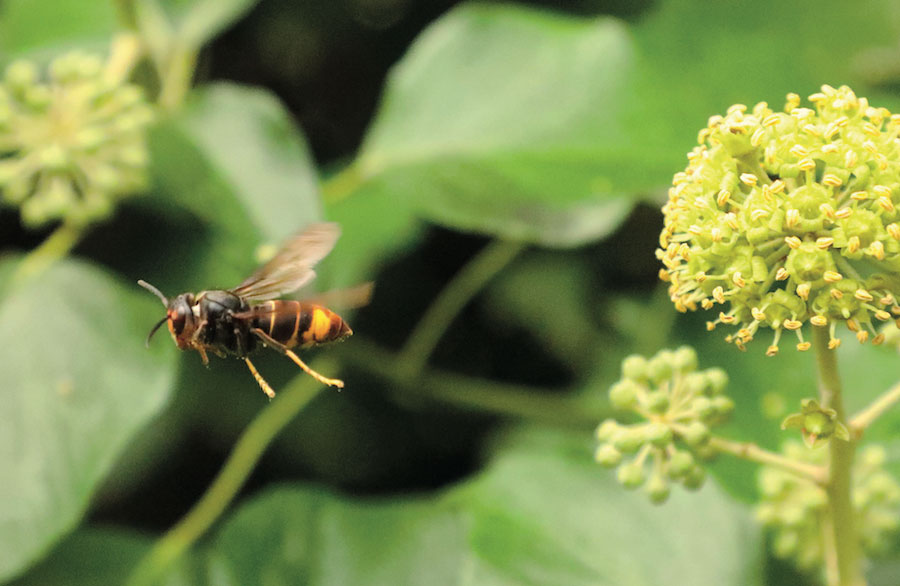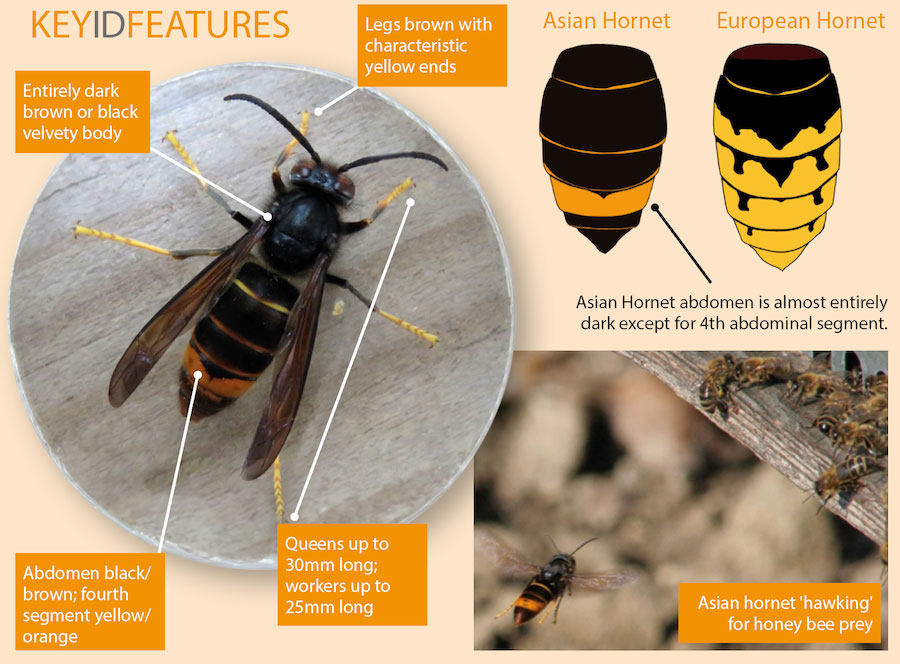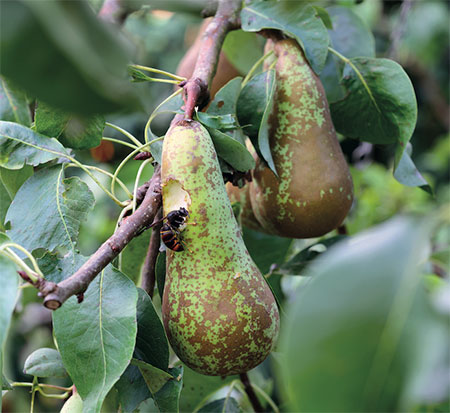Asian hornets could reduce UK agricultural yields
27th February 2024
The British Beekeepers’ Association (BBKA) is warning vintners and fruit growers about the detrimental impact Asian hornets would have on agriculture if they became established in the UK.

In 2023 a record number of the yellow-legged hornets was recorded in the country, and beekeepers fear the highly invasive and destructive insect could become naturalised.
BBKA chair, Diane Drinkwater (pictured), said: “I cannot overstate the seriousness of the situation. Asian hornets are apex predators and decimate pollinators, leaving ecological destruction in their wake. They also feed on ripe fruit – spoiling crops and increasing the risk of harm to pickers.
“We must learn from what’s happening in those European countries where these non-native insects have colonised. If they become established here, the insect population will be reduced and there will be a severe and ever-growing impact on pollination and the quality of our food crops.”
As of 3rd November 2023, 71 Asian hornet nests had been found in 55 locations; in the previous six years, just 14 nests were discovered since the arrival of the first Asian hornet in 2016.
“We must act now to stop Asian hornets getting established in this country. Farmers and others working in the countryside are ideally placed to spot and report this highly invasive predator,” added Diane.
Asian hornets (Vespa velutina) are slightly smaller than native European hornets, have yellow tipped legs, an orange face and brown body with one yellow stripe.
Sightings should be reported immediately to the Non-Native Species Secretariat (NNSS) via the Asian Hornet Watch app or the online reporting form.

In 2023, nests had been found and destroyed in Devon, Dorset, East Sussex, East Riding of Yorkshire, Essex, Greater London, Hampshire, Kent, North Yorkshire, and Surrey. The known distribution highlights that no area can become complacent regarding the threat of an Asian hornet incursion.
If any nests were missed, this spring overwintered queens will find locations to build primary nests in sheltered places such as sheds and barns. Later in the season they will go on to establish large, secondary nests nearby.

It is important to take care not to approach or disturb a nest. Asian hornets are not generally aggressive towards people, but an exception to this is when they perceive a threat to their nest.
Researchers have published papers estimating potential losses to the UK economy based on analysis of Asian hornets in other European countries where they have taken hold.
According to the University of Exeter, Asian hornets could trigger economic losses of £30–45 million per year. There are approximately 250,000 honey bee hives in the UK, which are estimated to be worth £150 million to the economy in honey and pollination provision.
The NNSS estimated that if the UK lost all its pollinators (not just honey bees), it would cost the economy £440 million per year or about 13% of the UK’s income from farming.
The European Commission’s economic modelling estimated hypothetical losses in the UK at 17% of its apple and pear production, 10% of other fruits as well as reductions in crops including pulses and rapeseed.
